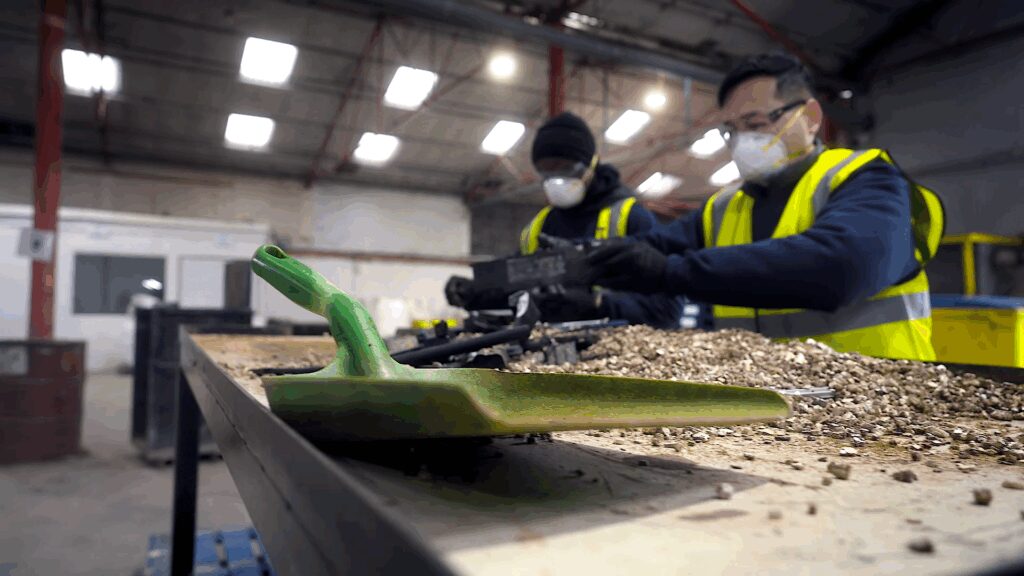MANCHESTER, UK. August 21st, 2025 – SER Group has announced a new partnership with Ideal Medical Solutions to provide a nationwide, sustainable recycling solution for lithium primary batteries from portable surgical devices.
Delivered through the SER Group’s specialist battery recycling division, Cellcycle, the initiative supports the supply of essential surgical equipment used across the UK and reflects both organisations’ shared commitment to supporting the NHS and the wider healthcare sector with safe, compliant, and environmentally responsible solutions
Under this new agreement, the SER Group will oversee the compliant collection, transportation, and sustainable recycling of lithium primary batteries used in Ideal Medical’s surgical staplers and other medical devices. These batteries will be processed to the highest environmental and safety standards, ensuring responsible disposal, maximum material recovery, and full regulatory compliance.
This nationwide programme offers healthcare providers a streamlined, dependable route for battery disposal that helps reduce risk, supports sustainability objectives, and contributes to a circular economy within the healthcare sector.
Supporting the NHS with Sustainable Medical Technology Solutions
Ideal Medical Solutions is a leading supplier of innovative surgical technologies and devices to healthcare professionals across the UK. With a portfolio of advanced surgical products, they play a critical role in improving patient outcomes and supporting the operational needs of NHS trusts and private hospitals. Known for their focus on quality, innovation, and service excellence, Ideal Medical has established itself as a trusted partner for surgical teams working in high-pressure, time-sensitive environments.
Andrew Wakeling, CEO of Ideal Medical Solutions, said: “We’re delighted to be partnering with the SER Group, to bring an innovative and sustainable battery recycling solution to the healthcare sector. This collaboration represents a meaningful step forward in our mission to support greener, more responsible healthcare.
“By working together, we’re not only reducing the environmental impact of medical device waste but also helping NHS trusts meet their sustainability targets, including those aligned with the NHS Net Zero strategy.
“We’re proud to be leading the way in offering practical, scalable solutions that support both environmental responsibility and the long-term goals of the NHS.”
Cellcycle – Delivering Specialist Battery Recycling Services for the Healthcare Sector
The SER Group’s battery recycling division, Cellcycle, operates Environment Agency–approved treatment facilities across the UK capable of processing both portable and industrial batteries. With an annual permitted capacity of 80,000 tonnes and a dedicated team of battery experts, Cellcycle provides tailored recycling solutions that ensure even the most sensitive and specialist waste streams are managed with precision, security, and sustainability in mind.
For the healthcare sector, this means a dedicated service capable of managing battery waste from critical medical technologies in a way that supports both operational resilience and environmental responsibility.
“Healthcare providers rely on cutting-edge technology to deliver exceptional patient care, but with that comes the responsibility to manage their environmental impact,” said Simon Chow, Business Development Manager at the SER Group.
“Our partnership with Ideal Medical Solutions ensures that even specialist battery waste from surgical equipment is handled in a way that supports both operational excellence and the UK’s wider sustainability goals.”
Driving Sustainability Across the UK Healthcare Supply Chain
This collaboration marks an important step towards embedding sustainability more deeply into the healthcare supply chain. By combining Ideal Medical’s role as a trusted medical equipment supplier with the SER Group’s expertise in battery lifecycle management, the partnership demonstrates how targeted solutions can safeguard patient safety, reduce environmental impact, and help the UK healthcare sector align with national ambitions for sustainability, carbon reduction, and the responsible recovery of critical materials.
ENDS

